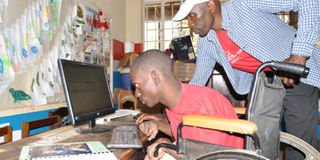Delay execution of new secondary curriculum

Government has announced that schools will not be subjecting students to termly examinations under the revised lower secondary school curriculum that will come into force tomorrow.
Students shall now be carrying out projects at the end of every topic with teachers required to record their achievements daily and support them where they have failed until some level of proficiency is attained. Only then will another topic be introduced.
Whereas examinations have for a long time now been assumed to be the best way of assessing students’ abilities and intelligence, as students are subjected to the same examination questions based on a particular syllabus that will have been followed by all students, the problem has always been that it seemed unfair that someone’s academic abilities was always judged on the basis of his or her performance in one single sitting. Given that argument, the ministry’s move should be lauded.
The problem though, is that there are questions about the level of preparedness. First, government has already announced that it has no money to fully fund the new curriculum.
Second, the new approach to assessment, which is being advocated under the new curriculum, calls for constant interaction between students and their teachers. That calls for total commitment and attention on the part of the teachers. But is it possible to get total commitment out of the teachers given the dissatisfaction arising out of the unresolved questions around pay and welfare?
Whereas the average secondary school teacher: pupil ratio officially stood at 21:75 in 2014, the realities on the ground are very different. Many classrooms are heavily populated, making it difficult for teachers to move around the classrooms and carry out effective teaching.
Mr Alex Kakooza, the Permanent Secretary in the ministry of Education, revealed earlier in the week that government has been training teachers who will begin with the pioneer students when the schools’ first term opens tomorrow. It is good to hear that some teachers have been trained, but how many are they? What is the ministry’s level of preparedness in terms of putting in place other teaching and learning materials?
Mr Filbert Baguma, the general secretary of the Uganda National Teachers’ Union (UNATU), noted last week that the ministry is yet to produce any textbooks designed to facilitate teaching under the new curriculum. How then is the learning going to take place? From the foregoing, postponement of the rollout is advisable to allow time for fixing the gaps and loopholes.




